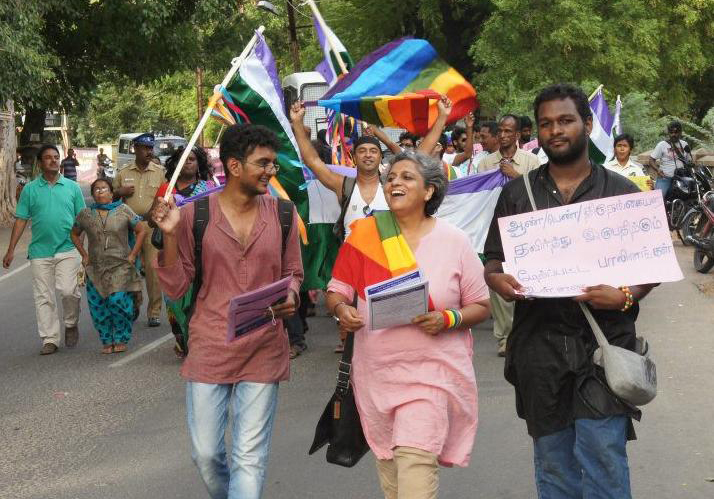
Jul 10, 2018 | News
The SC is set to reconsider the criminalization of consensual same-sex relationships between adults, in response to a writ petition with significant ramifications for addressing the full range of human rights violations based on sexual orientation or gender identity in India said the ICJ.
The Indian Supreme Court commenced hearing the case, Navtej Singh Johar v. Union of India, which is joined with five connected cases, today, concerning the constitutional validity of the criminalization of consensual same-sex relations between adults under Section 377 of the Indian Penal Code in response to writ petitions filed by several LGBTI individuals.
Section 377 criminalizes “carnal intercourse against the order of nature”. Section 377 is a relic of the British colonial penal code and is replicated in several former British colonies even though it was it was finally repealed in Northern Ireland in 1982, following repeals in Scotland in 1980 and England and Wales in 1967.
“Hopefully, the Indian Supreme Court will follow and build upon the strong precedent set by the Delhi High Court in the Naz Foundation v. Govt. of NCT of Delhi that declared Section 377 and the criminalization of consensual same-sex relationships to be in violation of the Indian Constitution as well as international law in 2009,” said Sam Zarifi, ICJ’s Secretary General.
“There are real grounds for optimism as the Indian Supreme court as recently as August 2017 handed a landmark judgment in Justice K.S. Puttaswamy and Another v. Union of India and Others that declared the right to determine one’s sexual orientation and gender identity as core to the right of privacy,” he added
The ICJ has documented how section 377 has created a climate in which arbitrary arrest, extortion, harassment and blackmail of LGBTI persons in India thrives.
“The Indian judiciary’s decision to read down section 377 in Naz Foundation v. Govt. of NCT of Delhi, which was then overruled by the Supreme Court, has been used by several other jurisdictions, such as Trinidad and Tobago as support for putting an end to criminalization of same-sex relationships. So the outcome of this petition before the Indian Supreme Court is of significance not just to people in India, but to the fight against discrimination around the world,” Zarifi said.
“But even a good decision by the Indian Supreme Court will not end the discrimination against people on the basis of their sexual orientation or gender identity in India. It’s time for the Indian Parliament to repeal section 377 in its entirety and engage in a wide-ranging review to consider which gaps, if any, need to be filled, for example with respect to acts constituting rape or other sexual offences,” he added.
Contact:
Maitreyi Gupta (Delhi), International Legal Adviser for India, t: +91 7756028369 ; e: maitreyi.gupta(a)icj.org
India-Supreme Court and Section377-News-press release-2018-ENG (full story with additional information, in PDF)
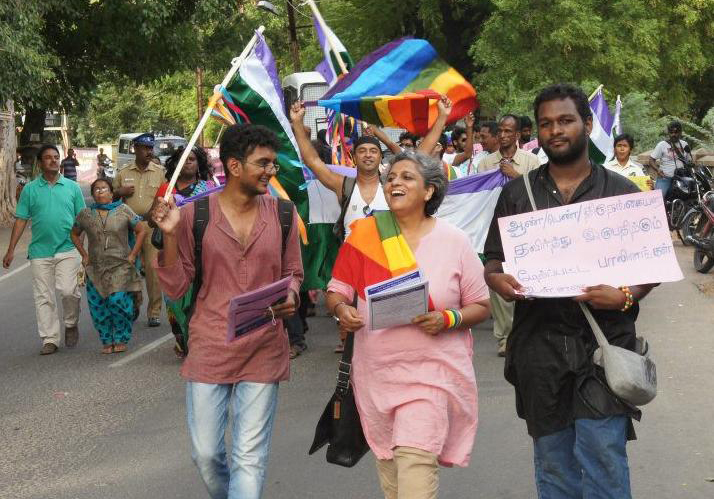
May 17, 2018 | Feature articles, News
South Asian States must repeal laws that discriminate against LGBTI persons, and must respect, protect and fulfill the full range of their human rights, the ICJ said today on International Day Against Homophobia and Transphobia (IDAHO-T).
These rights include the right to equality before the law and equal protection of the law for all without discrimination, to which LGBTI persons are entitled due to their inherent dignity as human beings.
Across South Asia, discriminatory laws have enabled socially constructed gender and sexual norms to foster and perpetuate intimidation, harassment, threats of violence and violence against lesbian, gay, bisexual, transgender and intersex (LGBTI) persons, due to animosity, hostility and hatred motivated in whole or in part by their actual or perceived sexual orientation, gender identity, gender expression and/or intersex status.
Under international law, including the International Bill of Rights, that is the Universal Declaration of Human Rights and the two Covenants – the International Covenant on Civil and Political Rights and the International Covenant on Economic, Social and Cultural Rights – discrimination on the grounds of sexual orientation and/or gender identity is prohibited.
In this context, the Office of the UN High Commissioner of the Human Rights has underscored five core international human rights law obligations for States: (1) protecting individuals from homophobic and trans-phobic violence; (2) preventing torture and cruel, inhuman, and degrading treatment of LGBTI persons; (3) decriminalizing homosexuality; (4) prohibiting discrimination based on sexual orientation and gender identity; and (5) respecting the freedom of expression, association and peaceful assembly of LGBTI persons.
Under international human rights law, the principle of non-discrimination includes the right to determine one’s sexuality, sexual orientation, and gender identity and gender expression.
Contrary to their international human rights law obligations in this respect, States’ policing of gender and sexuality has created a pattern of stigma, harassment and violence.
For example, consensual same-sex sexual relations remain criminalized in seven out of eight countries in South Asia – Afghanistan, Bangladesh, Bhutan, India, Maldives, Pakistan, and Sri Lanka – based on colonial era laws, such as S. 377 of the Penal Codes of Pakistan, India, Maldives and Bangladesh, and similar legal provisions in Sri Lanka and Bhutan, that criminalize “carnal intercourse against the order of nature”.
While the enforcement of these laws rarely lead to actual criminal convictions and sentences of imprisonment, their mere continued existence creates an ominous and ongoing threat against and criminalizes entire sectors of the populations in these countries.
This, in turn, gives rise to a climate that encourages and is ripe for extortion, harassment and blackmail of LGBTI persons, by the police, as well as non-State actors, including the general public and even their own families.
While there have been some progressive developments, discrimination, violence and other human rights abuses against LGBTI people – both at the hands of State and non-State actors – remain rampant in South Asia.
Hence, on IDAHO-T, the ICJ renews its call on all South Asian Governments to repeal discriminatory laws against LGBTI persons, including laws that criminalize consensual same-sex sexual relations.
In addition, the organization urges all South Asian Governments to enable transgender persons’ right to self-identification of their gender, and to enact legislation that establishes prior, free, full, informed, genuine and consistent consent for any medically unnecessary interventions on intersex persons.
Contact
Maitreyi Gupta, ICJ International Legal Adviser in India, t: +91 7756028369; e: maitreyi.gupta@icj.org
Full text in ENG (PDF): India-IDAHO-T call-News-Feature article-2018-ENG
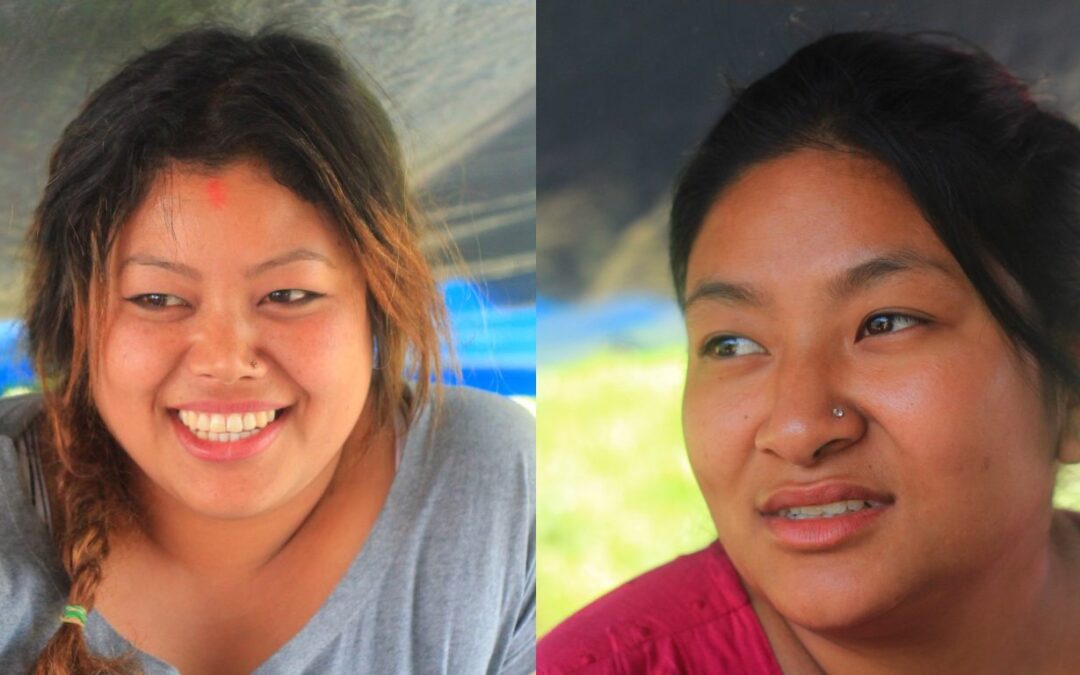
Dec 21, 2017 | News
On the 10th anniversary of the Supreme Court’s decision in Sunil Babu Pant on the protection of the rights of lesbian, gay, bisexual, transgender and intersex people (LGBTI), the ICJ calls on the Government of Nepal to fully implement the Court’s ruling.
In 2007, the Supreme Court of Nepal delivered a judgment in Sunil Babu Pant v. the Government of Nepal and others, directing the Government of Nepal to take necessary measures to ensure that people of diverse gender identities and sexual orientations could fully enjoy their rights without discrimination. Such measures were to include the adoption of new laws or amending existing laws.
However, ten years after the judgment, LGBTI persons are denied equal protection of the law, and their rights are still not fully protected.
“The Supreme Court’s 2007 judgment gave hope to LGBTI people in Nepal and inspired judiciaries in the region and the world,” said Frederick Rawski, ICJ’s Asia Director. “Despite some positive measures, the Government has much more work to do to implement the judgment and ensure that the rights of the LGBTI community in Nepal are fully respected.”
The Supreme Court based its findings on international human rights law and standards, particularly in respect of the right to non-discrimination and equality and the right to privacy. The Court relied in particular on Nepal’s legal obligations under the International Covenant on Civil and Political Rights (ICCPR).
The Court strongly rejected arguments that a person’s LGBTI status was the result of “emotional and psychological disorders”, and found that the petitioners faced violence, stigmatization, and discrimination because of their sexual orientation or gender identity. The Court further ordered that a new Constitution under consideration by the Constituent Assembly should guarantee the right to non-discrimination on the grounds of gender identity and sexual orientation.
Since then, some steps have been taken. The 2015 Constitution that was ultimately adopted contains provisions guaranteeing the right to equality for all citizens and establishing special provisions for the protection, empowerment and advancement of gender and “sexual minorities”. Pursuant to a subsequent Supreme Court ruling, transgender men and women can now change their gender markers to “O” on official documents. However, to use “M” or “F”, they still face prohibitive and unclear restrictions. A recently tabled bill would also criminalize unnecessary medical interventions and provide some, though incomplete, protections to intersex children.
Despite these developments, discrimination against LGBTI people remains rampant in the labour market, in schools and in hospitals. LGBTI people are mistreated and sometimes disowned by their families and singled out for physical attack – often beaten, sexually assaulted and subjected to severe physical abuse. Recent revisions to the Civil Code (2017), effective from mid-August 2018, do not recognize equality before the law related to family life.
“These violations continue in the absence of a state strategy or political will to tackle them,” added Rawski. “The Government of Nepal should prioritize enacting reforms to ensure the protection of the rights of LGBTI persons.”
The ICJ calls on the Government of Nepal to fully implement all aspects of the 2007 ruling and subsequent Supreme Court rulings affecting LGBTI communities. This should include, at the minimum:
- Repealing all discriminatory laws, including provisions of the recently introduced Penal and Civil Codes, against sexual orientation and gender identity in line with the principle of equality, equal protection and non-discrimination;
- Enacting legislation that allows same-sex couples full equality before and protection of the law;
- Enacting legislation that removes any prohibitive or unclear restrictions to changing of gender markers on all official documents;
- Enacting legislation that establishes prior, free, full, informed, genuine and consistent consent, and prevents unnecessary medical interventions on intersex persons; and
- Ensuring that the legal protections are given practical effect, including through implementation measures and administrative instructions binding officials at all levels of government.
Contact:
Frederick Rawski, ICJ Asia Pacific Regional Director, t: +66 64 478 1121, e: frederick.rawski@icj.org
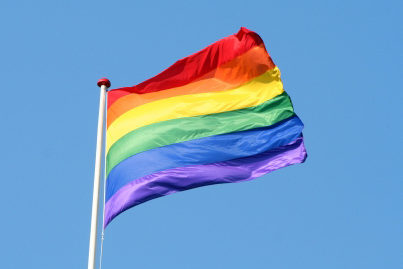
Aug 24, 2017 | News
Today, the Indian Supreme Court delivered a landmark judgment declaring the right to privacy an intrinsic part of the right to life and liberty under Article 21 of India’s Constitution.
The ICJ welcomed a momentous and courageous judgment, where the Supreme Court took an expansive view of the right to privacy, and held that, at its core, privacy includes “the preservation of personal intimacies, the sanctity of family life, marriage, procreation, the home and sexual orientation…”
As such, this judgment is an important step towards scrapping laws criminalizing same-sex activity in the country, the ICJ said.
“The judgment is a testament to the inspiring work of human rights activists and lawyers in India, who have shown the potential of the law to affirm human rights and equality,” said Frederick Rawski, ICJ’s Asia Director.
“The ruling could have far-reaching implications for a number of cases -including with respect to the criminalization of consensual same-sex relations – where laws, policy and practices have been challenged on the basis that they violate the right to privacy,” he added.
The judgment clarified that the right to privacy is not spatially bound and exists beyond four walls as it “attaches to the person” and is not “lost or surrendered merely because the individual is in a public place.”
Significantly, in explaining the ambit of the right to privacy, the Supreme Court held that sexual orientation is “an essential component of identity” and “equal protection demands protection of the identity of every individual without discrimination.”
The Court also highlighted that laws criminalizing same-sex activity have a “chilling effect on the exercise of the right”, posing “a grave danger to the unhindered fulfillment of one’s sexual orientation, as an element of privacy and dignity.”
Section 377 of the Indian Penal Code criminalizes voluntary “carnal intercourse against the order of nature with any man, woman or animal” and prescribes a range of penalties including life imprisonment.
In Naz Foundation v. Govt. of NCT of Delhi, the Delhi High Court in 2009 read down the application of section 377, holding, among other things, that insofar as it criminalizes consensual sexual acts, it violates Articles 21 (right to life and liberty), 14 (equal protection of the law) and 15 of the Constitution (freedom from discrimination) of the Indian Constitution.
However, in Suresh Kumar Koushal in December 2013, the Supreme Court reversed the 2009 Delhi High Court ruling, effectively recriminalizing homosexuality.
The petitioners challenged the ruling in Koushal, and in February 2016, the Indian Supreme Court referred a “curative petition” to a five-judge bench of the Supreme Court for consideration.
In today’s judgment, the Supreme Court questioned the rationale in Koushal, and expressed disagreement with the manner in which Koushal dealt with the “privacy–dignity based claims of LGBT persons.”
It also found the reasoning in Koushal flawed and unsustainable for being discriminatory towards LGBT persons by calling them “a miniscule fraction of the country’s population” and making that the basis for denying their right to privacy.
However, the Court held that since a challenge to section 377 is pending before a larger bench, its constitutional validity would be decided in the appropriate proceedings.
“The Supreme Court’s judgment is indeed historic, but the real test of its impact will be whether the right to privacy it affirms is given effect in its true spirit in individual cases, so as to ensure that laws, policies and practices meet India’s obligations under the Constitution as well as international standards,” added Rawski.
Contact:
Frederick Rawski (Bangkok), ICJ Asia Pacific Regional Director, e: frederick.rawski(a)icj.org
Ajita Banerjie, ICJ Consultant in Delhi, t: +918447784157; e: ajita.banerjie(a)icj.org
India-Privacy & section 377-News-web stories-2017-ENG (full story in PDF)
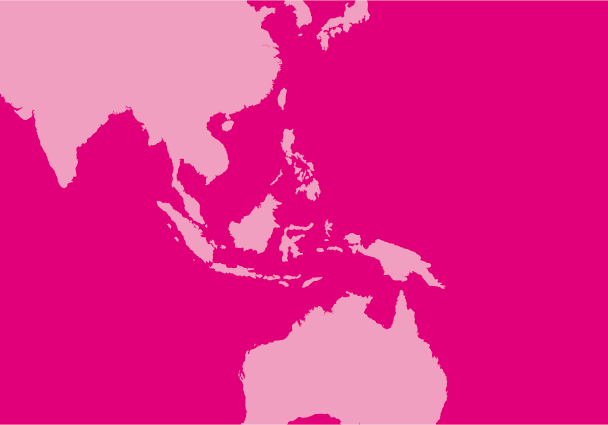
Apr 29, 2017
The High Court of the Hong Kong Special Administrative Region decided to effectively grant the same spousal benefits to a civil servant in a same-sex marriage that the Government provides to the spouses of other married civil servants whose marriages are to persons of the opposite gender.
The High Court held in the case Leung Cheung Kwong v. Secretary for the Civil Service, et. al, that the denial of spousal benefits under the Civil Service Regulations to same-sex couples legally married under foreign laws amounts to unlawful discrimination based on sexual orientation.
“This decision confirms the critical role that the judiciary can and should play in upholding human rights and combatting discrimination based on sexual orientation and gender identity,” said Emerlynne Gil, ICJ’s Senior International Legal Adviser for Southeast Asia.
Mr. Leung Chun Kwong, the applicant in the case, is a Chinese national and a permanent resident of the Hong Kong Special Administrative Region. In 2005 he met Mr Adams, a national of New Zealand, and they later decided to marry.
In light of the fact that the law in Hong Kong did not allow for same-sex marriage, they married in New Zealand, where the law makes provision for such marriages.
Eventually, Mr. Leung applied for and was denied: a) spousal benefits that the Government provides to the spouses of other married civil servants whose marriages are to persons of the opposite gender; and b) to have his tax liability jointly assessed with that of Mr. Adams, as a married couple.
He then brought judicial review proceedings before the High Court challenging both decisions on a number of grounds, including that the said denials discriminated against him based on his sexual orientation.
Judge Anderson Chow said he was unable to see how the denial of such benefits to legally married same-sex couples would serve to protect “the traditional family”.
The ICJ had been granted leave by the Court to intervene in the case.
The amicus brief submitted by the ICJ described the European Court of Human Rights’ approach to the issues at stake in this case, including, in particular, that the prohibition of discrimination under the European Convention on Human Rights duly covers questions related to sexual orientation, and that if the reasons advanced for a difference in treatment were based solely on a person’s sexual orientation, this would amount to discrimination under the Convention.
The High Court was also presented with the question of whether the marriage of a same-sex couple legally entered into under foreign laws may also constitute “marriage” for the purposes of Hong Kong’s Inland Revenue Ordinance (IRO).
In this instance, however, the Court held that to construe “marriage” under the IRO as including same-sex marriages would run counter to the meaning of this term under Hong Kong laws.
In any event, the High Court further pointed out that the refusal by the Commissioner of Inland Revenue to assess the tax liability of Mr. Leung jointly with that of his spouse, as a married couple, did not cause any prejudice to them as the joint assessment would have made no difference to their total tax liability.
In the circumstances, therefore, the Commissioner’s refusal did not engage the right to equality.
Gil said: “The issue of the equal right of same-sex couples to marriage in Hong Kong was not ultimately at stake in this case. However, we hope that future judicial decisions will continue to push forward the protection of all human rights for all people in Hong Kong.”
Hong Kong-ICJ Amicus-Advocacy-Legal submissions-2017-ENG (ICJ Amicus, in PDF)
Hong Kong-High Court Judgment-Advocacy-2017 ENG (Judgment, in PDF)









